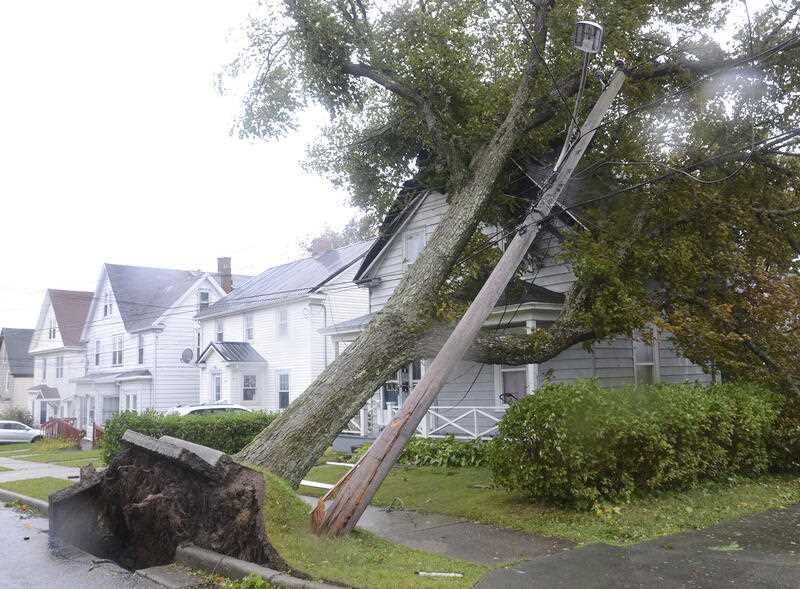After powerful storm Fiona left a trail of destruction in Canada’s east coast, the focus shifted to massive clean-up efforts, damage assessment and restoration of power and telecom services as officials warned of a long road to recovery.
The historic storm slammed into eastern Canada with hurricane-force winds, forcing evacuations, uprooting trees and powerlines, and reducing many homes to “just a pile of rubble.”
The Canadian Hurricane Centre estimated Fiona was the lowest pressured land falling storm on record in Canada.
Prime Minister Justin Trudeau said Canadian armed forces would be deployed to help with the clean-up, adding Fiona caused significant damage and recovery would require a big effort.
Despite the intensity of the storm, there were no serious injuries or deaths, which government officials said was a result of residents paying heed to the repeated warnings.
Still, thousands of residents across Nova Scotia, Prince Edward Island (PEI) and Newfoundland were without power and dealing with patchy telecom connections, and government officials pleaded with residents for patience.
They warned that in some cases it would take weeks before essential services are fully restored.
“We do know that the damage is very extensive, quite likely the worst we have ever seen,” Dennis King, PEI premier, told reporters on Saturday.
“Islanders … should know that our road to recovery will be weeks or longer. It will be an all-hands on deck approach,” he added.
Several university students lined up for food outside convenience stores powered by generators due to the power outage caused by Fiona. The Canadian Red Cross has launched a fund raising drive to support the affected people.
Government officials said the full scale of the destruction will only be known in the coming days and weeks. But with the storm packing gusts of up to 170 km/h sweeping away homes, bridges and roads.
Premiers of the affected provinces told the federal government they need long-term support around public and critical infrastructure after the storm tore off roofs of schools and community centres, as well as quick relief to businesses and families to get on with normal life quickly.
The storm also severely damaged fishing harbours in Atlantic Canada, which could hurt the country’s $C3.2 billion ($A3.6b) lobster industry, unless it is fully restored before the season kicks off in few weeks.
By John Morris in STEPHENVILLE
Fallen trees lean against a house in a city in Nova Scotia, Canada


